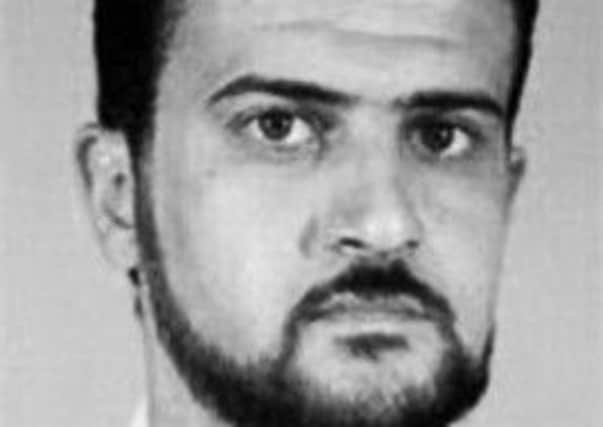UK tough on terror insists May after Al-Libi stay


Anas al-Libi, who was seized by US special forces on Saturday in the Libyan capital Tripoli, arrived in Britain in the mid-1990s and lived in Manchester after being granted political asylum, according to reports.
The 49-year-old was accused by the US of involvement in the 1998 American embassy bombings in east Africa which killed more than 220 people.
Advertisement
Hide AdAdvertisement
Hide AdAl-Libi, also known as Nazih Abdul-Hamed al-Ruqai, was arrested by the Metropolitan Police the following year but was released and later fled Britain.
The Home Secretary would not comment specifically on Al-Libi, but defended the Government’s record on tackling extremism.
Detectives are believed to have found an al Qaida manual at his home which advised Osama bin Laden’s followers on how to execute terror plots.
She said: “When we came into Government we took a look at how we dealt with issues around extremism, we extended the work we do to deal with extremism, we have tightened up in terms of the settlement here in the UK and for example, slightly different, I’ve excluded more extremist hate preachers than ever before.
“So when we came to Government we took a long, hard look at what we were doing and we have, going forward, ensured that we’re taking a rigorous approach.”
Al-Libi was on the FBI’s Most Wanted list and there was a five million-dollar reward for information relating to his capture.
US prosecutors claimed the computer expert aided the east Africa bombings by carrying out research and taking photographs of the embassy in Nairobi in 1993.
His son, Abdullah al-Ruqai, said his father was part of the Libyan Islamic Fighting Group, an Islamic militant group opposed to Muammar Gaddafi.
Advertisement
Hide AdAdvertisement
Hide AdMany of the organisation’s members were forced to flee the country, and al-Libi is believed to have spent time in Sudan in the 1990s before moving to Britain.
Al-Libi’s son also said the family subsequently spent time in Afghanistan and Iran before returning to Libya in 2010.
Keith Vaz, chairman of the Home Affairs Select Committee, said the case would be raised with the Home Secretary when she appears before MPs next week.
Mr Vaz said: “This case raises serious questions about the motives behind asylum and national security decisions in the UK.
“It is not the first time that someone, who has been brought to the attention of the authorities and released, has gone on to be linked to further terrorist activity.
“I will be raising these concerns with the Home Secretary when she appears before the committee on October 15.”